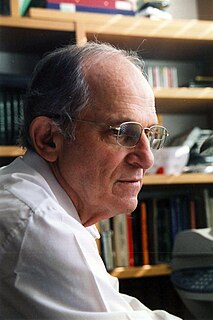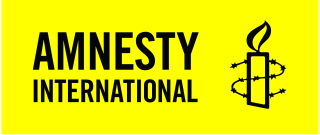
Reform Judaism is a major Jewish denomination that emphasizes the evolving nature of the faith, the superiority of its ethical aspects to the ceremonial ones, and a belief in a continuous revelation, closely intertwined with human reason and intellect, and not centered on the theophany at Mount Sinai. A liberal strand of Judaism, it is characterized by a lesser stress on ritual and personal observance, regarding Jewish Law as non-binding and the individual Jew as autonomous, and openness to external influences and progressive values. The origins of Reform Judaism lay in 19th-century Germany, where its early principles were formulated by Rabbi Abraham Geiger and his associates; since the 1970s, the movement adopted a policy of inclusiveness and acceptance, inviting as many as possible to partake in its communities, rather than strict theoretical clarity. It is strongly identified with progressive political and social agendas, mainly under the traditional Jewish rubric Tikkun Olam, or "Repairing of the World". Tikkun Olam is a central motto of Reform Judaism, and action for its sake is one of the main channels for adherents to express their affiliation. The movement's greatest center today is in North America.
Liberal Judaism is one of the two WUPJ-affiliated denominations in the United Kingdom. It is smaller and more radical in comparison with the other one, the Movement for Reform Judaism. As of 2010 it was the fourth largest Jewish religious group in Britain, with 8.7% of synagogue-member households.

The Central Council of Jews in Germany is a federation of German Jews. It was founded on 19 July 1950, as a response to the increasing isolation of German Jews by the international Jewish community and increasing interest in Jewish affairs by the (West) German government. Originally based in the Rhenish areas, it transferred its seat to Berlin after the Reunification of Germany (1990). As of 2015 the Jewish community in Germany has around 100,000 registered members, although far more Jews live in the country without belonging to a synagogue. From its early years, the organisation has received strong financial and moral support from the government.

Leo Baeck was a 20th-century German rabbi, scholar and theologian. He served as leader of Liberal Judaism in his native country and internationally, and later represented all German Jews during the Nazi era. After the war, he settled in London, UK, where he served as the chairman of the World Union for Progressive Judaism.

Abraham Geiger was a German rabbi and scholar, considered the founding father of Reform Judaism. Emphasizing Judaism's constant development along history and universalist traits, Geiger sought to re-formulate received forms and design what he regarded as a religion compliant with modern times.

The Movement for Reform Judaism is one of the two World Union for Progressive Judaism-affiliated denominations in Britain. Reform is relatively traditional in comparison with its smaller counterpart, Liberal Judaism, though it does not regard Jewish law as binding. As of 2010, it was the second largest Jewish religious group in the United Kingdom, with 19.4% of synagogue-member households.

The World Union for Progressive Judaism (WUPJ) is the international umbrella organization for the various branches of Reform, Liberal and Progressive Judaism, as well as the separate Reconstructionist Judaism. The WUPJ is based in 40 countries with 1,275 affiliated synagogues, of which 1,170 are Reform, Progressive or Liberal and 105 Reconstructionist. It claims to represent a total of some 1.8 million people, both registered constituents and non-member identifiers. The WUPJ states that it aims to create common ground between its constituents and to promote Progressive Judaism in places where individuals and groups are seeking authentic, yet modern ways of expressing themselves as Jews. It seeks to preserve Jewish integrity wherever Jews live, to encourage integration without assimilation, to deal with modernity while preserving the Jewish experience and to strive for equal rights and social justice.

Gustav Karpeles was a German Jewish historian of literature and editor; son of Elijah Karpeles.

Moshe Zemer was a Reform Rabbi in Israel between 1963-2011. He was the co-founder of Jewish Reform institutions in Israel and served in key positions in them, including as chair of MARAM, Board member of the Israel Movement for Progressive Judaism, Board member of the Union for Progressive Rabbis in the United States, and a senior lecturer of Jewish Studies at the Hebrew Union College in Jerusalem.
Walter Jacob U.S. Reform rabbi was born in Augsburg, Germany, and immigrated to the United States in 1940. He received his B.A. from Drury College and ordination and an M.H.L. from Hebrew Union College in 1955. He earned his D.H.L. in 1961 from HUC-JIR, which also granted him an honorary D.D. in 1975; he also received a D.D. from Drury College in 1990. Augsburg honored him with a special award in 2014. Immediately following ordination, Jacob was named assistant rabbi at Rodef Shalom Congregation in Pittsburgh, Pennsylvania, under Rabbi Solomon Freehof. He served as a chaplain in the U.S. Air Force in the Philippines during the years 1955–57. In 1966, Jacob succeeded Freehof as senior rabbi, becoming emeritus in 1997. He was adjunct professor at the Pittsburgh Theological Seminary (1968–74). In 1990 he along with a small group re-established Liberal Judaism in Germany. For several years he served as the Honorary Liberal Rabbi of Munich, Germany and in 1998 was co- founder of the Abraham Geiger College, the first rabbinic seminary in Central Europe since the Holocaust in Berlin/Potsdam. He continues as its President and has ordained six classes.
Abraham Geiger Kolleg is a rabbinic seminary at the University of Potsdam in Potsdam, Germany.

Harry Bresslau was a German historian and scholar of state papers and of historical and literary muniments. He was born in Dannenberg/Elbe and died in Heidelberg.

Posek is the term in Jewish law for a "decisor" — a legal scholar who determines the position of Halakha in cases of law where previous authorities are inconclusive, or in those situations where no clear halakhic precedent exists.

The Blackpool Reform Jewish Congregation is a Reform Judaism congregation in Blackpool, Lancashire, England.
Leo Trepp was a German-born American rabbi who was the last surviving rabbi who had led a congregation in Nazi Germany during the early days of The Holocaust.
Clemens Thoma was a Swiss theologian.
Emet veShalom is a synagogue in Nahariya, Israel. It was established in 1963 by a group of people, mainly immigrants from Germany and Central Europe, who sought a more liberal form of Judaism. Emet veShalom is one of the oldest Reform Judaism communities in Israel and is now the only non-Orthodox synagogue in Nahariya. It is affiliated to the Israel Movement for Reform and Progressive Judaism.

Terry Swartzberg is an American PA campaigner and journalist. He is based in Munich, Germany and contributed for 25 years to the International Herald Tribune and other international publications. He is especially known for his work for the holocaust memorial project Stolpersteine and for his "reality check" - since 2012 he has been wearing a kippah in public.
The Center for Jewish Studies Heidelberg is an accredited institution of higher learning, supported by the Central Council of Jews in Germany and funded by the German federal government. The HfJS operates in close cooperation with the University of Heidelberg and opens its doors to students and scholars, regardless of religious affiliation.
















